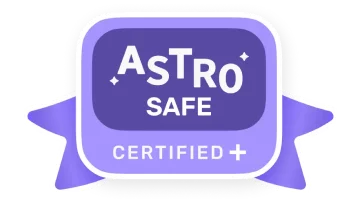Facts for Kids
German is a West Germanic language primarily spoken in Western and Central Europe, known for its unique grammar and rich literary tradition.
Overview
Grammar And Syntax
Language And Identity
German Language In Education
Vocabulary And Word Formation
History Of The German Language
Influences From Other Languages
Literature And Poetry In German
Dialects And Regional Variations
German Language In The Digital Age

Inside this Article
Johann Wolfgang Von Goethe
Latin Alphabet
United States
Martin Luther
Switzerland
Community
Computer
Tapestry
Grammar
English
Did you know?
🗣️ German is a language spoken by around 90 million people as their first language.
🇩🇪 It is mainly spoken in Germany, Austria, and Switzerland.
🎉 The German language uses the Latin alphabet and has 26 letters plus special ones like ä, ö, and ü.
🗓️ German started as different dialects that blended together over centuries.
📖 Martin Luther helped popularize German by translating the Bible in the 16th century.
🌍 There are over 30 regional dialects of German, like Bavarian and Swiss German.
📚 German grammar features nouns that always start with a capital letter!
🏗️ German vocabulary often combines smaller words to create new ones.
🌐 German has borrowed many words from other languages, such as Latin and French.
📖 Famous German literary figures include Johann Wolfgang von Goethe and Friedrich Schiller.
Introduction
️ It is primarily spoken in countries like Germany, Austria, and Switzerland. Around 90 million people speak German as their first language! It uses the Latin alphabet, which has 26 letters, just like English, but also includes special letters like ä, ö, and ü! 🎉
German is known for its compound words, where two words combine to make a new one. For example, "Handschuh" means "glove" and is made from "Hand" (hand) and "Schuh" (shoe)! Isn't that cool?
Grammar And Syntax
One fun fact is that German nouns always start with a capital letter, even in the middle of a sentence. There are three grammatical genders: masculine (der), feminine (die), and neuter (das), which tell you if a noun is a boy, girl, or neither! 🏷
️ For example, "der Tisch" (the table) is masculine, "die Lampe" (the lamp) is feminine, and "das Buch" (the book) is neuter. In German sentences, the verb usually comes in the second position, so you might have to switch the order of the words to make it sound just right!
Language And Identity
In Germany, festivals like Oktoberfest involve lots of German-speaking crowds sharing laughs and stories! Additionally, many German-speaking countries use their language to unite their people, sharing history and values. Whether it's through music, art, or everyday conversations, the German language plays a key role in bringing people together and helping them feel proud of who they are.
German Language In Education
In Germany, children start learning German early, sometimes as young as 6 years old. Classroom activities often include reading, writing, and singing to make learning fun! 🎶
Some schools in countries like the United States offer German as an elective, so kids can learn to speak, write, and even do projects in German! Learning German can open doors to different cultures, travel, and even help with job opportunities in the future. 🌟
It’s a great language to know, and it can be a fun challenge to learn!
Vocabulary And Word Formation
️ For instance, "Flugzeug" means "airplane" and is made from "Flug" (flight) and "Zug" (pull). German also has a lot of "loanwords"—words borrowed from other languages. For example, the word "Computer" is the same in both English and German! 💻
Additionally, many words in English have German roots; for instance, "kindergarten" comes from German and means "children's garden!" Exploring German vocabulary can be like a word puzzle waiting to be solved!
History Of The German Language
️ It started as a group of different dialects many centuries ago. These dialects slowly blended together over time. The Old High German language, spoken around 500 AD, was one of the first forms of German. Famous writers like Martin Luther helped make German more popular in the 16th century by translating the Bible, making it easier for people to read 📖. In the 19th and 20th centuries, the language spread even more as Germany became an important country in Europe. German today is different from Old German, but you can still see the connections!
Influences From Other Languages
For centuries, Latin played an important role; many German words, especially in science or religion, come from Latin roots. Additionally, during trade, German borrowed words from Dutch, French, and Italian. For instance, "Ballet" (a type of dance) comes from French! 🩰
Also, watching movies or eating foods from other cultures can introduce new words. For example, "Pizza" and "Ketchup" are also used in German! These influences show how languages can blend and evolve over time, creating a colorful tapestry of words!
Literature And Poetry In German
Some famous German writers include Johann Wolfgang von Goethe and Friedrich Schiller. Their works, like "Faust" and "William Tell," are celebrated around the world! Poetry is also popular in Germany, with famous poets like Heinrich Heine capturing beautiful images with words. 🌼
Books for kids, like "Max und Moritz" by Wilhelm Busch, tell funny tales, while fairy tales by the Brothers Grimm, like "Cinderella," have been loved for generations! Reading German literature can be a fun adventure, leading you into magical worlds and exciting journeys!
Dialects And Regional Variations
There are over 30 regional dialects spoken in Germany and other German-speaking countries. For example, people in Bavaria speak a different type of German called Bavarian, which has unique words and phrases. In Switzerland, Swiss German is spoken, and it sounds quite different! 🤔
These dialects can change from town to town, which can make it challenging for someone from another region to understand. Even in Austria, people use words that might confuse Germans. Dialects add color and variety to the German language, making it fun to learn!
German Language In The Digital Age
With social media, people can connect globally, sharing posts, videos, and ideas in German. Platforms like YouTube even have channels dedicated to teaching German, making learning enjoyable through games and challenges! 🎮
Many sites offer interactive quizzes and fun exercises to help kids practice their language skills. Moreover, computer games often have versions in German, making it fun for players to learn without realizing they're studying! Streaming platforms even showcase popular German movies and shows, making it exciting to experience the language and its culture! 🌟

